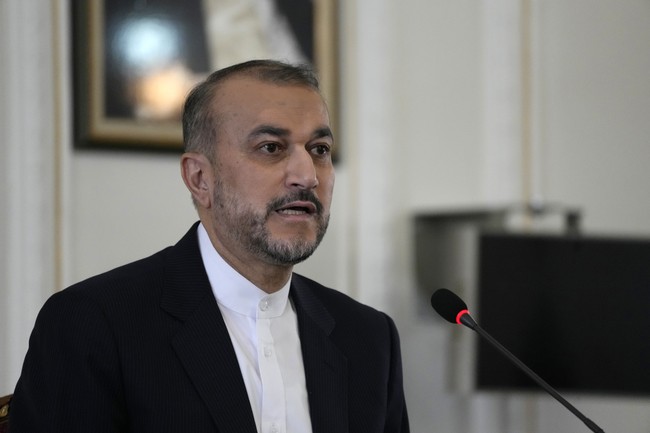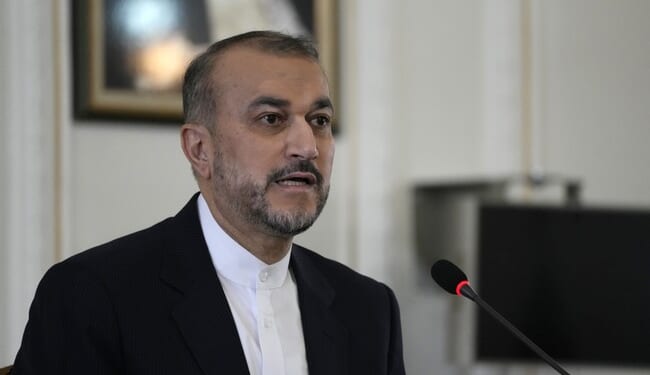
The war of words between Israel and Iran is heating up as Israel’s response to Iran’s missile and drone attack last week draws near. The tit-for-tat attacks and retaliation cycle are escalating as a war neither side wants becomes more likely with each statement emanating from the two nation’s capitals. “The nuclear facilities of the Zionist enemy have been identified and all the necessary information from all targets is at our disposal,” the IRGC’s Brigadier General Ahmad Haghtalab was quoted as saying.
“Our fingers are on the trigger of firing strong missiles to destroy the designated targets in response to a potential attack by them,” said the commander of the Revolutionary Guard division assigned to protect Iranian nuclear facilities.
Israeli Prime Minister Benjamin Netanyahu has been itching to hit Iran’s nuclear infrastructure literally for decades. The opportunity to do so is presenting itself, and it will take a lot of self-control from Netanyahu to forgo the pleasure. Haghtalab also suggested that if Israel attacked, the Islamic Republic would drop all pretenses and build a nuclear weapon.
“If the fake Zionist regime wants to use the threat of attacking the nuclear centres of our country as a tool, reconsidering the doctrine and policies of the Islamic Republic of Iran, and deviating from previously stated considerations would be likely and imaginable,” he said. Meanwhile, Iran’s President Ebrahim Raisi warned that the “tiniest” violation of Iran’s sovereignty would bring a “massive and harsh” response. Netanyahu has brushed off all calls for restraint even as Joe Biden has refused to say whether he would back a retaliation strike on Iran by Israel.
The diplomatic pressures came as Iran’s president warned that even the “tiniest” invasion of its territory would bring a “massive and harsh” response. Violence meanwhile surged on Wednesday between Israel and the Iran-backed Lebanese militant Hezbollah group, which fired a volley of rockets and drones on northern Israel. The attack wounded at least 14 Israeli soldiers, six seriously, the army said. The military said it struck Hezbollah targets deep inside Lebanon in response. Speaking to a meeting of his Cabinet, Netanyahu said he met Wednesday with both visiting foreign ministers and thanked them for their countries’ support. But he said Israel would make the call on its own on how to respond despite “all sorts of suggestions and advice” coming from Israel’s allies, some of whom — including the United States, the United Kingdom and France — helped Israel repel Iran’s drone and missile assault.
“I want to be clear: we will make our decisions ourselves. The state of Israel will do whatever is necessary to defend itself,” Netanyahu said. That may be, but would Netanyahu attack Iranian soil if the U.S. president didn’t back his play? Biden already has an Arab headache for his 2024 presidential campaign. But does he really want to risk a Jewish headache as well?
Netanyahu is not insensitive to Biden’s plight, so he may end up using more covert operations like targeting more Iranian generals or perhaps hitting Hezbollah, which exchanged missiles with Israel on Tuesday. Iran’s nuclear and missile programs may be safe for the moment. But a repeat of the missile and drone attack from last week will put a world of hurt on the Iranians.












